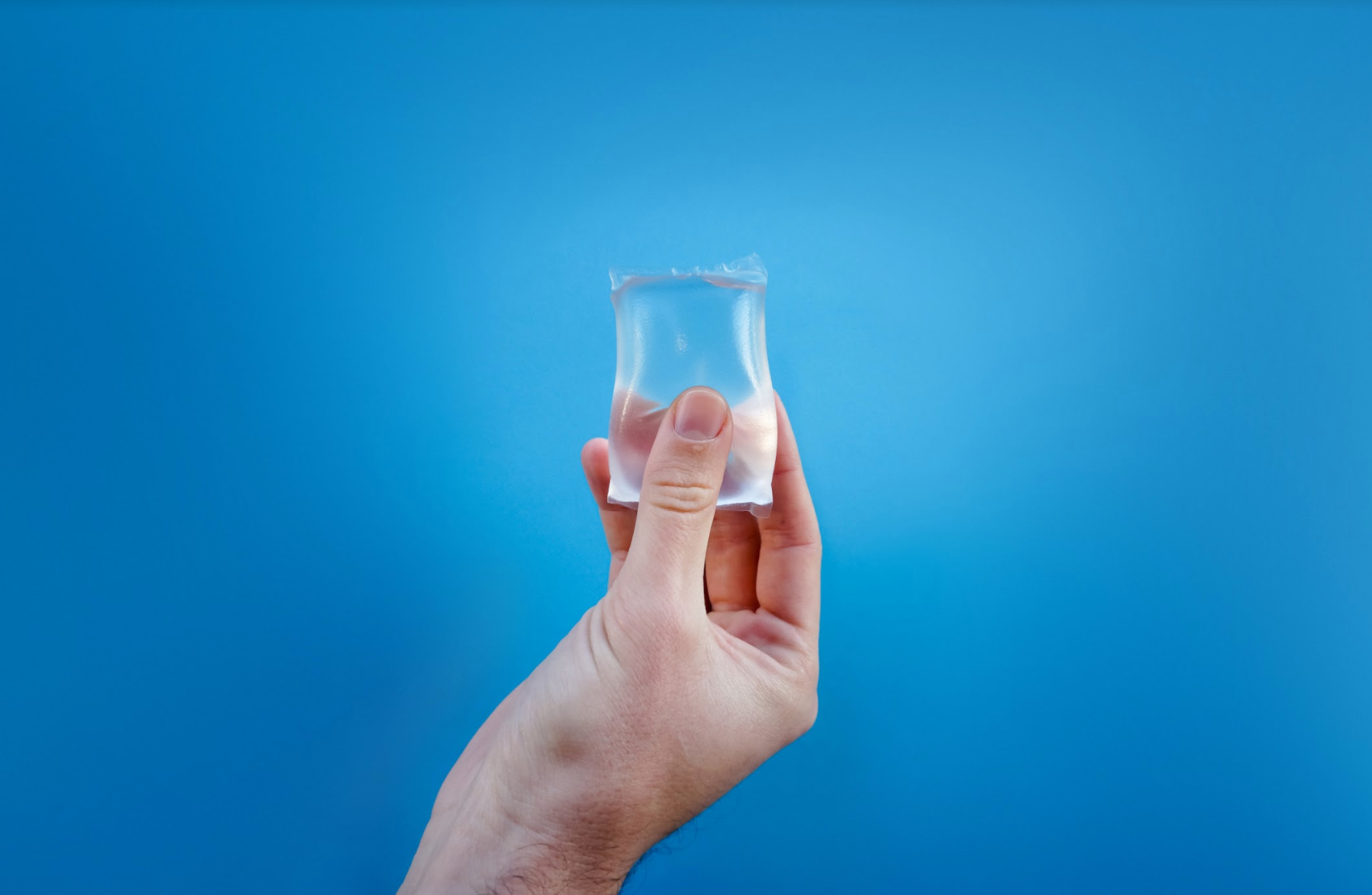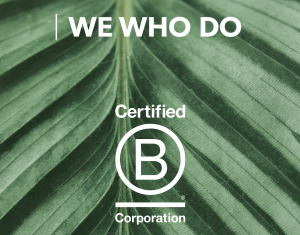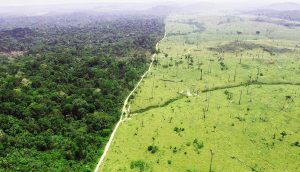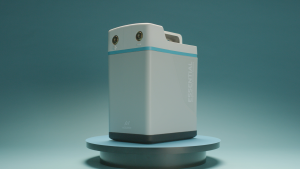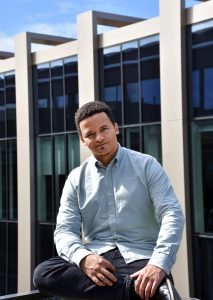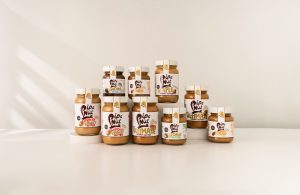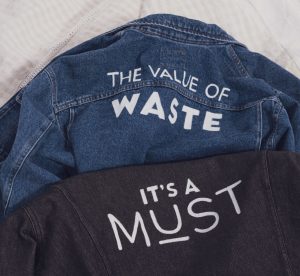WeWhoDo sat down with co-founder, Pierre Paslier, to learn more about Notpla, the sustainable start-up that offers packaging solutions made from just seaweed and plants.
Where did the idea for NOTPLA come from?
My background is in mechanical engineering. I started my career as a Packaging Engineer for L’Oréal and saw first-hand the impact of single use plastic: especially how damaging they are to the planet.
My fellow co-founder Rodrigo and I met at Imperial College London during our Masters in Innovation Design Engineering and this is where the work on Ooho began. We wanted to create an alternative to the small plastic water bottle that would feel more like a fruit than an industrial container. We actually started quite humbly by mixing food ingredients in our kitchen because we didn’t have access to a lab yet!

Although we believed our work was scientifically interesting, we didn’t start the project with the expectation that it would become a business. If anything, we just wanted to showcase our creation. From there, a video we posted of Ooho went viral and that’s when we started to see the potential interest around the material and thus started Skipping Rocks Lab in 2014.
We then joined Climate KIC, Europe’s largest funded accelerator focused on climate innovation, and started collaborating with chemists and chemical engineers from Imperial College to test Ooho at running events, festivals and takeaway shops. At this point, it was becoming a scalable manufacturing technology and this was a really exciting moment where an idea we had in a lab was suddenly turning into a viable business proposition.
However, as with any new and innovative technology, we needed investment. This came in 2017, which helped grow the business, build the first machine and set up a manufacturing hub. These steps were crucial to get Ooho off the ground. After later investment in 2018, we could then accelerate development and expand the chemistry, commercial, engineering and design teams.
It was only in 2019 that we finally gave the material we’d been working on since 2013 a name, and that is when NOTPLA was born. So, Ooho is the flexible packaging for beverages and sauces and NOTPLA is the material combining seaweed and plants.
What makes NOTPLA different?
We aim for a bullet proof level of sustainability. Our initial idea at Imperial was that if we can eat this packaging, nature can too. When something is completely natural, nature knows how to deal with it. So, we started testing different natural resources and found that seaweed had many sustainable benefits. Growing up to 1m per day, it doesn’t compete with food crops, doesn’t need fresh water or fertiliser and actively contributes to de-acidifying our oceans. Because brown seaweed is one of nature’s most renewable resources, it means that Ooho biodegrades in 4-6 weeks. And because it’s completely natural, it is also edible. This is ideal for on-the-go consumption and could completely reshape the packaging industry.
So the beauty, and therefore what makes NOTPLA different, is that it is actually not plastic. Unlike a lot of packaging companies who use bioplastics, which are still technically plastic, we have fully moved away from using synthetic materials. For us, this is crucial in building a sustainable future and ultimately saving our planet.
Can you tell us a bit more about what you guys are working on at the moment?
One of the latest developments for Ooho has been revolving around sauces and condiments for food on the go. Last year, we started packaging ketchup and tartare sauce sachets for a handful of Just Eat restaurants in London, and it gave us some great insight into this market. Typically, sauce sachets are made of plastic and aluminum foil, and have such low residual value that they’re one of the least likely packaging to be recycled. On top of that, they’re used on the go and therefore are often littered into the environment. NOTPLA sachets are great for take away restaurants, but also for sauce in ready meals, salads and we’ve even started testing soy sauce sachets with sushi restaurants! We’ve just recently increased our manufacturing capacity and are looking for new partners restaurants, retailers and sauce manufacturers to start implementing our plastic free solution for their products.
So if you want your local takeaway to stop using plastic sachets, give them a nudge about NOTPLA on social media, it goes a long way!
Where do you see the company in 5 years time?
Right now the focus is still to iron out the industrialisation of our three product lines. As with any technological advancement, we need the money and research behind it.
In a year’s time, the natural progression would be to grow the UK market. We’ve already worked with big companies, including the likes of Pepsico and Unilever, and even secured a deal with Lucozade for the London Marathon. However, due to COVID-19, a lot of event-related opportunities have been postponed, but we are still super excited to see where we can take NOTPLA.

In five years, we would like to see NOTPLA’s presence in different geographies, and also have a portfolio of different solutions for different companies. Brands have already started to engage with sustainability as a major focus area and we hope that they’ll start to shift to the right type of packaging to reflect this. In my view, brands don’t have to pay for Facebook ads to tell consumers that they’re sustainable, they just need to start taking the active steps towards it.

